Shiroyama Hideaki
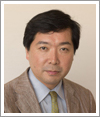
Director
Professor, Graduate School of Public Policy / Professor, Graduate Schools for Law and Politics / Professor and Vice Director, Policy Alternatives Research Institute
Hideaki SHIROYAMA is a Professor of Public Administration at the Graduate School of Public Policy and at the Graduate Schools for Law and Politics, and the former Director of UTokyo Policy Alternatives Research Institute, The University of Tokyo. His research focuses on international administration, science, technology and public policy, and public policy process.
His publications include Transformation of Political Space and Policy Innovation 1 Political Theory of Policy Innovation (University of Tokyo Press, 2008), The Structure of International Aid Administration (University of Tokyo Press, 2007), Governance of Science and Technology (Toshindo, 2007), “The Harmonization of Automobile Environmental Standards between Japan, the United States and Europe” in Pacific Review vol. 20-3, “Administrative Reorganization and Public Sector Reform in Japan” in The Public Sector in Transition: East Asia and the European Union Compared (Nomos, 2007), “Technology Innovation and Diffusion for Environmental Protection,” in Energy Market Restructuring and the Environment (The University Press of America, 2002).
He also served as the Chairman of the Planning Committee of New Initiatives for Humanities and Social Sciences Program at the Japan Society for the Promotion of Science from 2003-2008, as President of the PI forum, an NPO for consensus building in Japan from 2006-2008 and as a member of various government advisory councils on higher education, nuclear safety, food safety, fire protection, scenarios for climate mitigation, and industrial policy.
Taniguchi Taketoshi
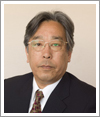
Professor, Policy Alternatives Research Institute
Dr. Taketoshi TANIGUCHI is a Professor at UTokyo Policy Alternatives Research Institute (PARI), the University of Tokyo. Prior to joining UOT in 2012, he was the Director of the Socio-Economic Research Center at the Central Research Institute of the Electric Power Industry from 2005-2010. He received his Ph.D. in nuclear engineering from the University of Tokyo in 1984. He also served since 2005 as a representative of HSE Risk C-cube, an NPO for risk communication and collaboration with the community. Dr. Taniguchi’s area of expertise includes energy and nuclear policies, energy-related environmental risk and external cost analysis, organizational risk management and the societal decision-making process. His recent works and interest focus on technological risk governance in a complex society.
Kishimoto Atsuo
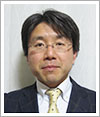
Professor, Osaka University Institute for Datability Science / Visiting Professor, Graduate School of Public Policy, The University of Tokyo / Policy Alternatives Research Institute
Atsuo KISHIMOTO is a Visiting Professor of the Graduate School of Public Policy, and also belongs to UTokyo Policy Alternatives Research Institute. He graduated from Kyoto University with a Ph.D (Economics) degree in 1998. He has worked at Department of Safety Engineering from 1998 to 2001, Research Center for Chemical Risk Management from 2001 to 2008, and Research Institute of Science for Safety and Sustainability from 2008 to 2014 as a research group leader in the National Institute of Advanced Industrial Science and Technology (AIST), specialized in the risk assessment of chemical substances and economic analysis of environmental, safety and health regulations.
Matsuo Makiko
Project Assistant Professor
Graduate School of Public Policy, The University of Tokyo
Makiko Matsuo is currently serving as Project Assistant Professor at the Graduate School of Public Policy, the University of Tokyo, where she engages in teaching and research on topics within Science, Technology, and Innovation Governance. At the Policy Alternative Research Institute, she belongs to both the Technology Governance Policy Research Unit and the Complex Risk Governance Policy Research Unit. She received her Master of International Studies from the Graduate School of Frontier Sciences, the University of Tokyo, in 2005, and her Doctor of Philosophy in March 2016. Her areas of concern are interdisciplinary in nature and covers such issues as Risk Governance, Risk Regulation, Global Health Issues, Food Safety, Interface Issues between Science and Politics, Technology Assessment (TA), International Standards Setting Process, International Harmonization, Codex Alimentarius Commission, and Sustainability.
Relevant recent publications:
- Yasushi Katsuma, Hideaki Shiroyama and Makiko Matsuo (2016), “Challenges in achieving the Sustainable Development Goal on good health and well-being: Global governance as an issue for the means of implementation”, Asia-Pacific Development Journal, Vol.23, No.2
- Japan Global Health Working Group (2016), “Protecting human security: proposals for the G7 Ise-Shima Summit in Japan”, the Lancet, Health Policy, Volume 387, No. 10033, p2155–2162 (Japan Global Health Working Group)*Makiko Matsuo is one of the members of the Japan Global Health Working Group.
- Hideaki Shiroyama, Yasushi Katsuma, Makiko Matsuo (2016), ‟Rebuilding Global Health Governance – Recommendations for the G7”, PARI Policy Brief.
- Makiko Matsuo, Atsuo Kishimoto, Masashi Tachikawa, Masahiro Matsuura (2015), “Joint Fact-Finding – Bridging the evidence gaps in decision making”, Technology Assessment in Japan and Europe, António Moniz and Kumi Okuwada eds., KIT, ITAS Publishing, pp.89-100
- Makiko Matsuo, Hiroshi Yoshikura (2014), “Zero in Terms of Food Policy and Risk Perception”, Food Policy, Vol.45, pp. 132-137.
- Makiko Matsuo (2013), “Shaping the Future Vision – the Activity of Foresight: Implications arising from the concept of resilience and the analysis of governance structure”, the Journal of Science Policy and Research Management, Vol.28, No2, pp.175-184 (in Japanese).
- Makiko Matsuo (2013), Restructuring Japanese Food Safety Governance: Institutional Changes and Future Challenges, the European Food and Feed Law Review, pp250-258.
- Makiko Matsuo, Matsuda, H. and Shiroyama, H., (2011) “Global Governance”, in Sustainability Science: A multidisciplinary approach Vol.1 edited by Komiyama. H et al., UNU Publications, pp.220-245.
Awards:
She is the recipient of the 2013 Junior Award by the Society for Risk Analysis Japan (SRAJ) for the contributions to the field of risk analysis by a scholar aged 40 or under. She was also awarded Annual Meeting Best Paper Award from SRAJ for her paper entitled “Reconsidering Food Safety Governance– An analysis from Comparative study on institutional settings.
Ohta Kyoko
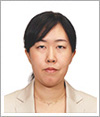
Lecturer, Faculty of Law and Letters, Ehime University / Visiting Researcher, Graduate School of Public Policy, The University of Tokyo
Kyoko OHTA received BA from Keio University in 2004, MPP from University of Tokyo in 2007 and Ph.D. in Law from University of Tokyo in 2013. Her areas of interest are public policy process, public administration, nonprofit sector and UK politics. She is now working in the research projects on complex risk governance and on Policy Thinknet.
Sato Jin
Miura Lully
Mikuniya Katsunori
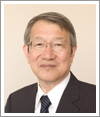
Shinohara Naoyuki
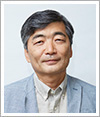
Professor, Policy Alternatives Research Institute
Prof. Naoyuki SHINOHARA has joined the Policy Alternatives Research Institute, the University of Tokyo in July 2015. He holds a BA degree in Economics from the University of Tokyo (1975) and Master in Public Affairs, from Woodrow Wilson School, Princeton University (1979). He was an Associate at the Center for International Affairs at Harvard University (1986) and a Visiting Professor at Saitama University (1990-1992).
He has occupied various senior positions at the Ministry of Finance of Japan, including Director-General of the International Bureau. From 2007 to 2009, he was Vice Minister of Finance for International Affairs and participated in the G7/G8, G20, IMFC, ASEAN+3 and other meetings as Finance Minister’s Deputy. He also served as Japan’s Executive Director at the Asian Development Bank during 1998-2001.
Most recently, he served as Deputy Managing Director of the International Monetary Fund from 2010 to 2015, and supervised the Fund’s surveillance exercise with member countries, worked on boosting the Fund’s financial resources and building relations across membership including through engagement with regional organizations.